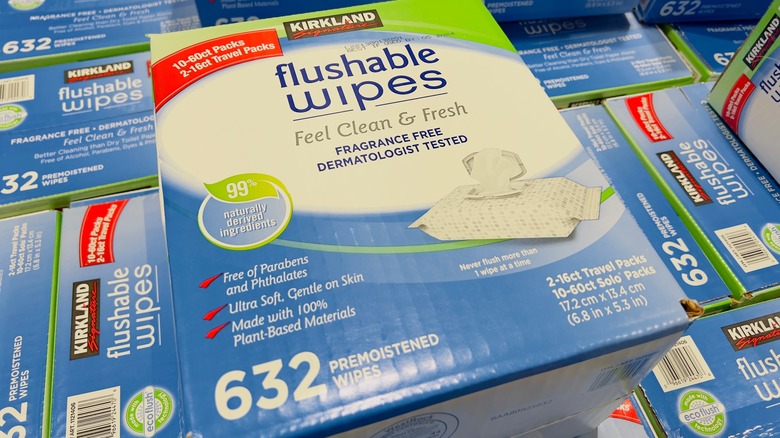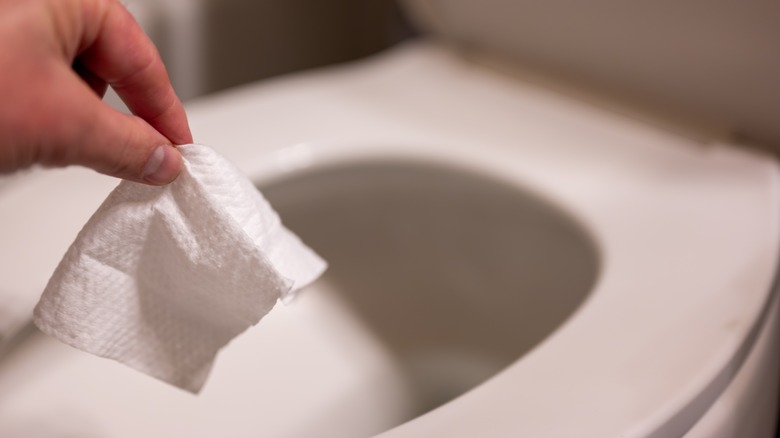Will Costco's Kirkland Brand Flushable Wipes Clog Your Toilet? Here's What We Know
Ask any plumber, and they'll tell you to avoid flushing anything besides toilet paper like the plague. But with so many "flushable" wipes on the market, that gets confusing. Many flushable wipes can indeed still cause plumbing problems, including Costco's Kirkland Signature Premoistened Flushable Wipes, according to a class-action lawsuit that reached a settlement this year.
Costco was accused of false advertising, with customers claiming that they bought the wipes because they were labeled as flushable, only to experience clogs, damaged pipes, and other harm to their homes' plumbing. The lawsuit covers customers who bought the wipes between July 2011 and May 2017 in New York state, and each class member is eligible to get $1.30 in settlement money per package of wipes.
However, the same flushable wipes are still available at Costco. Costco has denied false advertising, despite agreeing to pay the settlement. So what's the real deal here, and should you stop using flushable wipes from Costco?
Flushable wipes are controversial
This isn't the first class-action lawsuit surrounding flushable wipes. In 2015, Procter & Gamble was also accused of falsely labeling its Charmin Freshmates Flushable Wipes; again, customers said they experienced clogs and damage, and again, Procter & Gamble paid the settlement but continued to sell flushable wipes. As these cases show, when it comes to wet wipes, there's long been a disconnect between what companies claim, what customers experience, and what plumbing professionals recommend.
Despite the label, plumbers say that when you flush flushable wipes, they take a long time to break down in comparison to toilet paper and may combine with other debris to form blockages. Many cities have urged consumers to stop flushing wipes due to the costly issues they can cause in sewer systems, whether they're labeled as flushable or not. Studies have found that there's no real difference between flushable wipes and non-flushable ones and that wipes don't fully disintegrate.
To avoid any chance of clogs, the safest bet is not to flush anything but toilet paper, and that includes flushable wipes. But that's not to say that every brand of flushable wipe is the same, and their performance can vary in different plumbing and sewer systems. One option is to do your own test: Put your regular toilet paper in a jar of water and shake it up vigorously to see how quickly it dissolves. Then do the same with the flushable wipe. If it won't break down in the same time as the toilet paper, it's not safe for your toilet.

